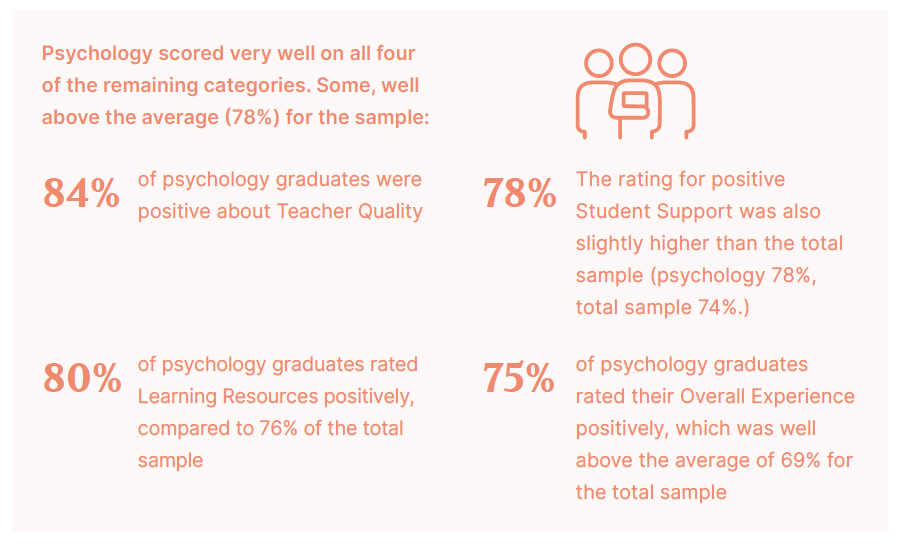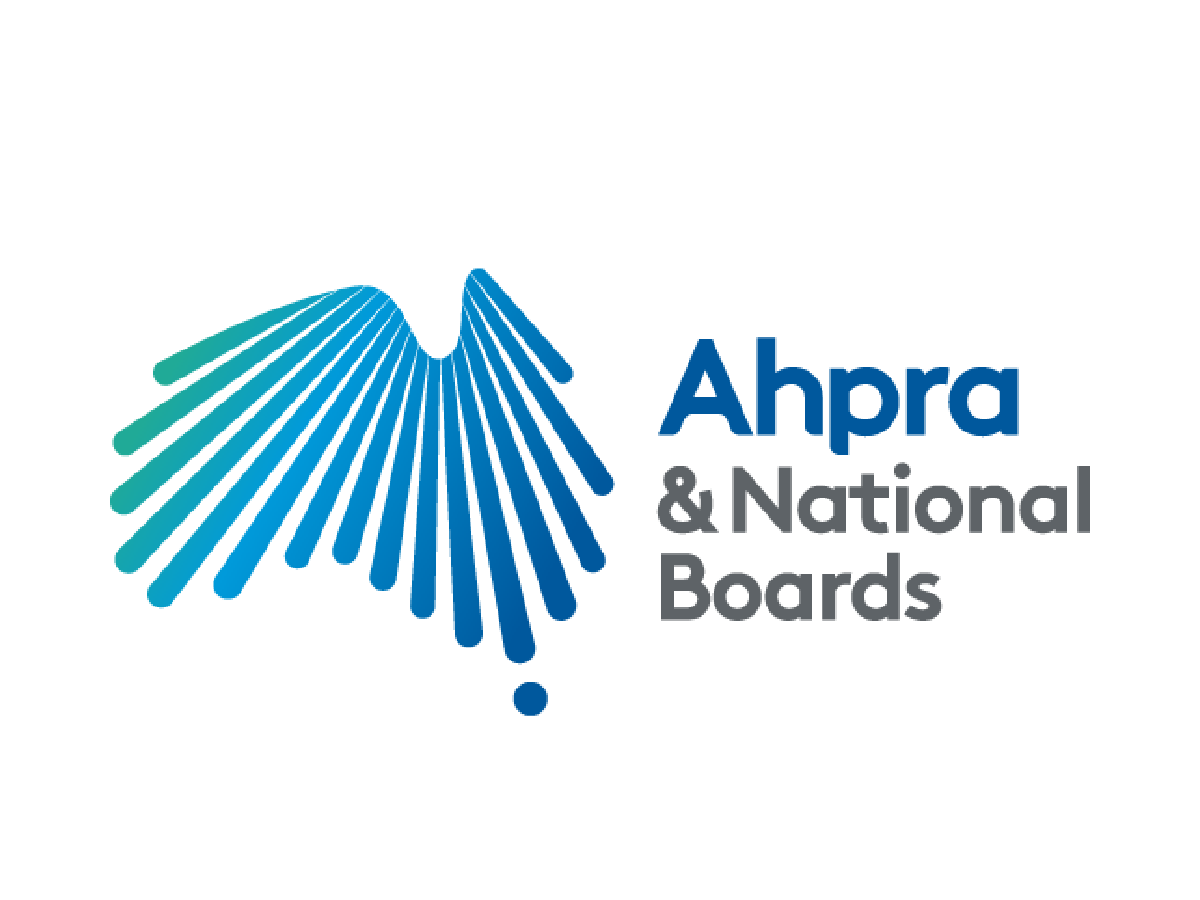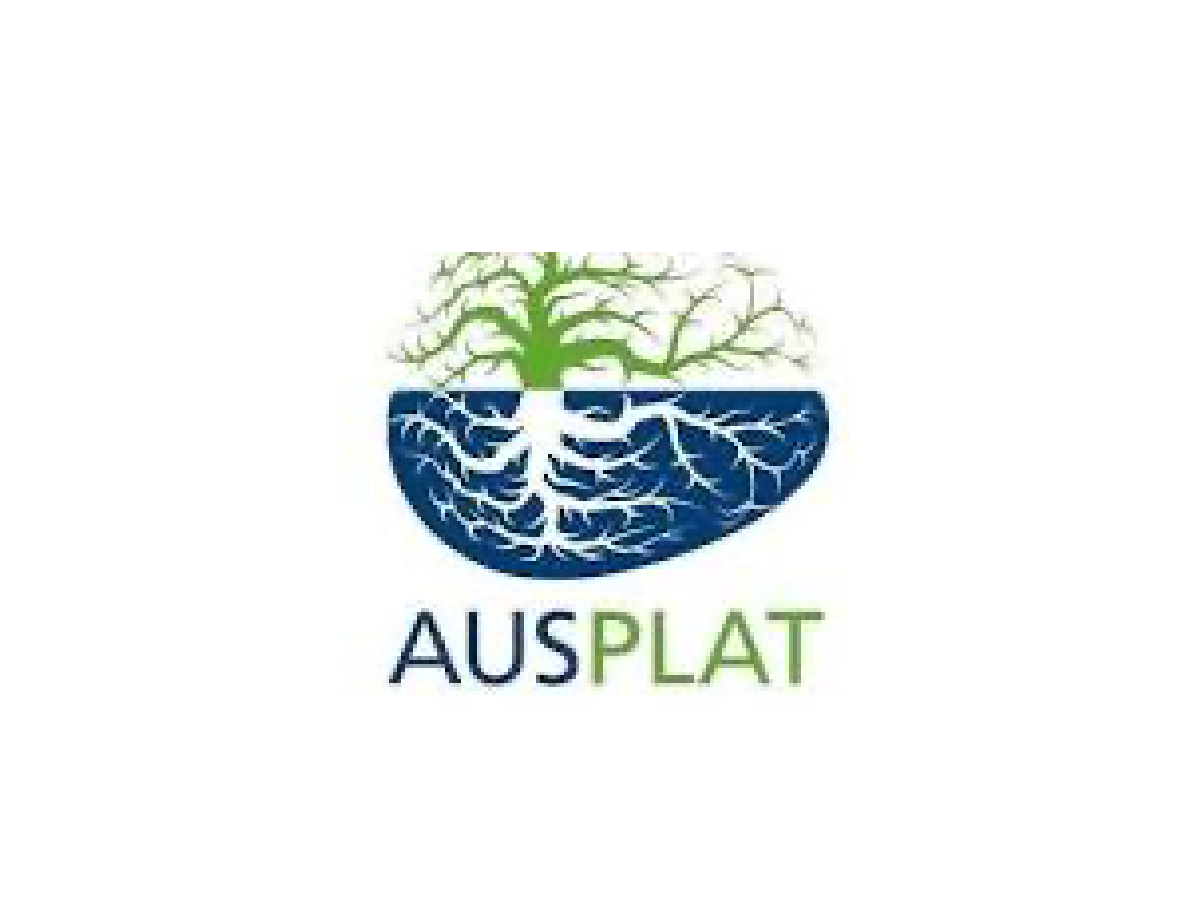Published in InPsych The Bulletin of the Australian Psychological Society Limited.
The undergraduate program is often regarded as the ugly duckling of psychology training; seen simply as a route to professional and/or research training. Previously, in 2015, HODSPA commissioned a report on the outcomes for three-year bachelor’s degree graduates in psychology from Graduate Careers Australia. In 2021, we commissioned an updated report. This report, by Professor Bruce Guthrie, looked at the immediate employment outcomes and salaries of three-year degree graduates upon graduation in 2017 and three years later in 2020 (Department of Education, Skills and Employment, 2021). It also looked at whether graduates reported their degree as being important for their employment at both time points. Finally, a separate analysis looked at how graduates rated aspects of their degree in comparison with 20 other study areas. We discovered that when we allow for those going into Honours, the employment outcomes and salaries of three-year graduates are good (Guthrie, 2021). However, we could do more to improve and highlight the skills that graduates acquire during their program. Finally, psychology graduates rated their teachers and their programs highly.
Each year, the Quality Indicators for Learning and Teaching (QILT) initiative polls graduates in all fields to determine their employment outcomes and their salaries, amongst other things. Psychology graduates were more likely than students in other fields of study to respond to this survey with some 58% (1499) of the graduating sample responding. The response rate for all fields of study was 49.3% (22,644).

Guthrie (2021) points out that the 2017 psychology group were below the average of the total sample in terms of employment (62% versus 73%) immediately following graduation. However, by 2020, some 87.2% were in employment compared with the average of 90.1%.
Why are psychology graduates less likely to be employed on graduation?
There are two explanations for this. First, unlike other disciplines, a significant proportion of psychology graduates (36.7%) are in further education, pursuing Honours. Only the STEM disciplines have a higher percentage of students undertaking Honours (44.3%). If we consider all fields of study, an average of 20.7% are in further education. Second, Honours entry is based on academic performance during an undergraduate degree.
For context, this means the top performing 36.7% of psychology graduates are removed from the employment equation. If this same percentage of top performing graduates were removed from the outcomes for other disciplines, it is likely that their results would look much worse. This argument is supported by the employment outcomes for STEM graduates, which at 61.6% immediately following graduation, is lower than psychology.
Immediately following graduation, the 2017 psychology graduates earned $57,500 per annum on average, compared with an average for all study areas of $60,000. Three years later, the average salary for psychology graduates was $72,500 compared with an overall average of $75,000. Again, this outcome was likely impacted by the removal of those pursuing Honours. The 2017 STEM graduates earned less following graduation ($58,700), and they also earned slightly less in 2020 ($70,000).

How important are the skills graduates with to their employment?
To assess this we looked at the whole sample, including those who are in Honours. Immediately following graduation, some 52.2% of the 2017 psychology graduates said that they were in employment that did not fully utilise their skills and education. The overall average was 28.3%. By 2020, only 28.1% of psychology graduates reported being in work that underutilised their skills and knowledge. This reduction (24.1%) is far larger than for any other field of study over the same time, with the next largest change being 13.8% for humanities, culture and social sciences.
The Guthrie report doesn’t allow us to determine exactly why this change has taken place, but it suggests psychology graduates come to value their degree more over time. While the more recent responses are positive, clearly, we have work to do in demonstrating to psychology graduates the value of the skills and knowledge that they acquire throughout their degree and the relevance and transferability of those attributes to their future employment.
QILT also asks graduates about the attributes they have acquired (Department of Education, Skills and Employment, 2020). Psychology graduates rated themselves at 86.6% on Foundation Skills, which was slightly higher than for the whole sample (85.1%). However, they rated themselves lower on Adaptive Skills and Attributes, at 78.1% compared with 81.0%. Finally, they also rated themselves somewhat lower on Team and Interpersonal Skills, at 72.1% versus 74.4%. While these outcomes are reasonable, we expect that as work-integrated learning becomes even more widespread and basic competencies are better integrated into undergraduate psychology programs, we will be able to improve these outcomes.
The Student Experience Survey captures the responses of students who graduated in 2020 and they are a different sample from that above. There are six questions that capture the student experience. For psychology graduates, 80% were positive about their Skills Development. This placed psychology in ninth position – slightly above the 78% for the whole sample, which covered 21 fields of study.
Second, no field of study did well on the question of Learner Engagement, with only 44% across all fields reporting positive experiences. Even fewer (34%) psychology graduates rated their experience of Learner Engagement as positive. This may have been a result of the COVID-19 pandemic disproportionately impacting on psychology students for whom the third year typically is highly stressful given the many graduates who would have been keen to be offered a highly competitive Honours position. Interestingly, medicine was the most highly rated field in terms of Learner Engagement (67%).
Psychology scored very well on all four of the remaining categories. Some 84% of psychology graduates were positive about Teacher Quality, well above the average (78%) for the sample. The rating for positive Student Support was also slightly higher than the total sample (psychology 78%, total sample 74%). Some 80% of psychology graduates rated Learning Resources positively, compared to 76% of the total sample. Finally, 75% of psychology graduates rated their Overall Experience positively, which again was well above the average of 69% for the total sample. Indeed, psychology was ranked second or third in each of these categories out of the 21 fields of study.
What does this mean for future of psychology graduates?
Our students clearly enjoy completing their undergraduate degree in psychology. We can make things even better for them by adding to and making clear the skills that they acquire as part of their psychology program, which should lead to a further improvement in their employment opportunities and salaries. The ugly duckling programs produce graduates who are swans!
1 Professor Lorelle Burton MAPS, Chair
Professor Kristin Pammer, Deputy Chair
Associate Professor Karena Burke MAPS, Treasurer
Associate Professor Carla Litchfield, Secretary
Associate Professor Renata Meuter, Immediate Past Chair
Associate Professor Dixie Statham MAPS, Member Executive
Emeritus Professor Nigel Bond FAPS, Executive Officer








